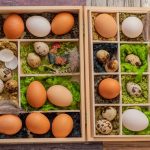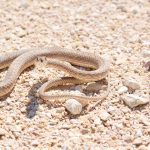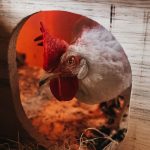Ducks and chickens have specific requirements for managing hot weather conditions. Both species are vulnerable to heat stress, which can result in various health problems if not adequately addressed. Unlike humans, ducks and chickens lack sweat glands, necessitating alternative methods for body temperature regulation.
Comprehending their hot weather needs is essential for maintaining their overall health and well-being. To remain comfortable during hot weather, ducks and chickens require access to shade, cool water, and proper ventilation. They must have opportunities to cool down, either by swimming in water or resting in shaded areas.
Recognizing signs of heat stress in these birds is crucial; symptoms include panting, lethargy, and reduced egg production. By understanding and addressing their hot weather requirements, caretakers can implement appropriate measures to ensure the comfort and health of ducks and chickens.
Table of Contents
- 1 Providing adequate shade and shelter for ducks and chickens
- 2 Ensuring access to fresh, cool water for ducks and chickens
- 3 Creating a cooling area for ducks and chickens
- 4 Managing the coop environment for ducks and chickens
- 5 Adjusting feeding schedules for ducks and chickens in hot weather
- 6 Monitoring the health and behavior of ducks and chickens in summer
- 7 FAQs
- 7.1 What are some ways to keep ducks and chickens cool in the summer?
- 7.2 How important is shade for ducks and chickens in the summer?
- 7.3 What should I consider when providing water for ducks and chickens in the summer?
- 7.4 Are there any specific breeds of ducks and chickens that are better suited for hot climates?
- 7.5 What are some signs that ducks and chickens may be suffering from heat stress?
Key Takeaways
- Ducks and chickens need to be provided with adequate shade and shelter to protect them from the heat in hot weather.
- Access to fresh, cool water is essential for ducks and chickens to stay hydrated and healthy during the summer months.
- Creating a cooling area, such as a shallow pool or misting system, can help ducks and chickens regulate their body temperature in hot weather.
- It is important to manage the coop environment by ensuring proper ventilation and using materials that reflect heat to keep ducks and chickens comfortable.
- Adjusting feeding schedules for ducks and chickens can help prevent heat stress and maintain their health in hot weather.
- Monitoring the health and behavior of ducks and chickens is crucial in summer to identify any signs of heat stress or illness and take appropriate action.
Providing adequate shade and shelter for ducks and chickens
Creating Artificial Shade
Natural shade from trees or shrubs is ideal, but if that’s not available, you can create artificial shade using tarps or umbrellas. Ensure the shade is large enough to accommodate all your birds and position it to provide continuous coverage throughout the day.
Proper Shelter for Hot Weather
In addition to shade, providing proper shelter is vital for ducks and chickens in hot weather. A well-ventilated coop or shelter will help protect them from the heat while still allowing for air circulation. Position the coop to minimize direct sunlight exposure and consider adding insulation or reflective materials to keep it cool.
Keeping Your Birds Comfortable and Safe
By providing adequate shade and shelter, you can help your birds stay comfortable and safe during hot weather. This is essential to ensure their well-being and prevent heat-related stress.
Ensuring access to fresh, cool water for ducks and chickens
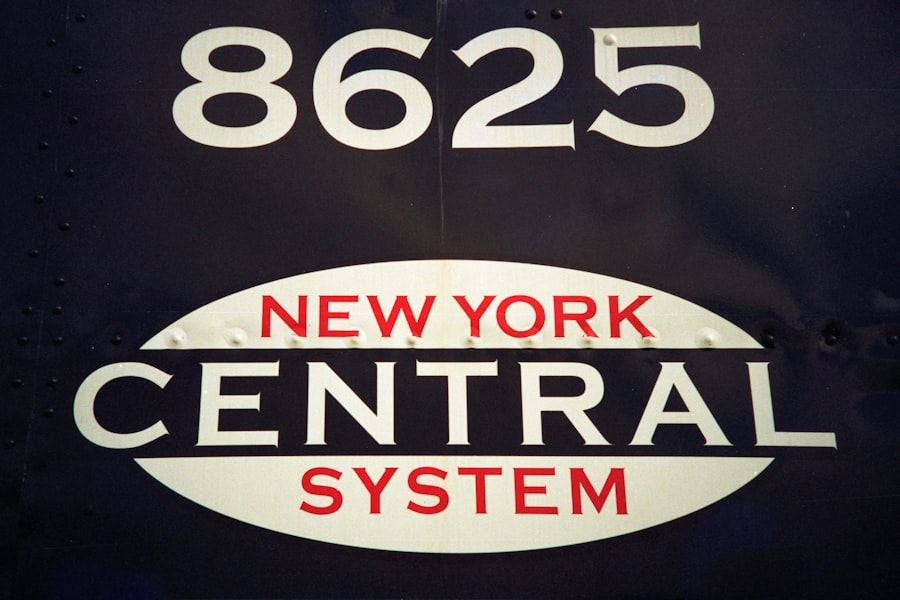
Access to fresh, cool water is crucial for ducks and chickens in hot weather. Both species need water not only for hydration but also for cooling off. Ducks, in particular, love to take a dip in water to regulate their body temperature, so providing a shallow pool or pond for them to splash around in is ideal.
For chickens, providing multiple water sources throughout their living area will ensure they always have access to hydration. In hot weather, it’s important to regularly check the water sources to ensure they are clean and cool. Consider adding ice or frozen water bottles to the containers to help keep the water temperature down.
Additionally, providing water with electrolytes can help replenish the minerals lost through sweating and panting. By ensuring access to fresh, cool water, you can help your ducks and chickens stay hydrated and comfortable during hot weather.
Creating a cooling area for ducks and chickens
Creating a designated cooling area for ducks and chickens can help them beat the heat in hot weather. For ducks, this could be a shallow pool or pond where they can take a dip and splash around. You can also consider setting up a misting system or sprinklers near their living area to provide additional cooling.
For chickens, creating a dust bath area with fine sand or dirt can help them stay cool by allowing them to cover themselves in the material. Another option for creating a cooling area is to provide frozen treats for your birds. You can freeze fruits, vegetables, or even mealworms in ice cubes or blocks of ice for them to peck at and enjoy.
This not only provides a source of hydration but also helps them cool down from the inside out. By creating a designated cooling area, you can help your ducks and chickens find relief from the heat in hot weather.
Managing the coop environment for ducks and chickens
Managing the coop environment is crucial for ducks and chickens in hot weather. Proper ventilation is key to ensuring air circulation and preventing the buildup of heat inside the coop. Consider adding windows, vents, or fans to help keep the air moving and reduce the temperature inside the coop.
You can also use reflective materials on the roof or walls to minimize heat absorption from direct sunlight. In addition to ventilation, it’s important to keep the coop clean and free of debris that can trap heat. Regularly remove soiled bedding and replace it with fresh material to maintain a comfortable environment for your birds.
Consider using materials like straw or wood shavings that provide insulation without retaining too much heat. By managing the coop environment, you can help your ducks and chickens stay comfortable and safe during hot weather.
Adjusting feeding schedules for ducks and chickens in hot weather
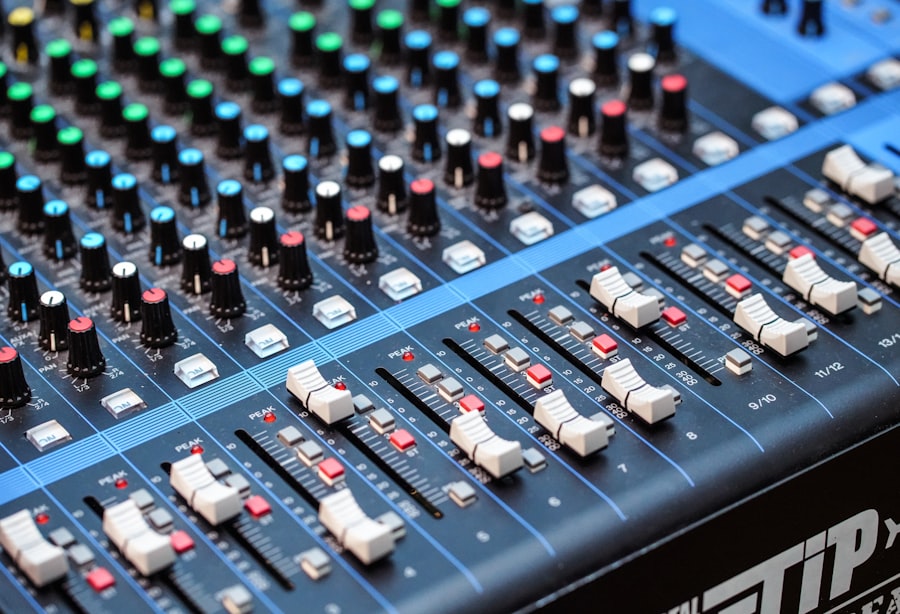
Smaller, More Frequent Meals
Consider offering smaller, more frequent meals throughout the day to encourage them to eat when it’s cooler. This can help prevent overeating during cooler times of the day when they may be more active.
Cooler Treats for Hydration
In addition to adjusting feeding schedules, consider offering cooler treats such as fruits or vegetables with high water content. Watermelon, cucumbers, and leafy greens are all great options that can help keep your birds hydrated while providing essential nutrients.
Additional Tips for Hot Weather
You can also consider adding electrolytes to their water or offering specialized feeds designed for hot weather conditions. By adjusting feeding schedules and offering cooler treats, you can help your ducks and chickens maintain their nutritional intake during hot weather.
Monitoring the health and behavior of ducks and chickens in summer
Monitoring the health and behavior of ducks and chickens is crucial during the summer months. Keep an eye out for signs of heat stress such as panting, lethargy, or decreased activity. If you notice any of these signs, take immediate action to help your birds cool down and seek veterinary care if necessary.
Additionally, monitor their egg production as a decrease in laying may indicate heat stress or other health issues. In addition to physical health, pay attention to their behavior and social interactions. Heat stress can lead to increased aggression or irritability among birds as they try to cope with the discomfort.
Providing ample space and opportunities for cooling off can help reduce tension within flocks. Regularly observe your birds’ behavior and make adjustments as needed to ensure their well-being during the summer months. In conclusion, understanding the needs of ducks and chickens in hot weather is essential for ensuring their comfort and well-being.
By providing adequate shade and shelter, access to fresh, cool water, creating cooling areas, managing the coop environment, adjusting feeding schedules, and monitoring their health and behavior, you can help your birds thrive even during the hottest months of the year. With proper care and attention, you can ensure that your ducks and chickens stay healthy and happy throughout the summer season.
If you’re looking for ways to keep your ducks and chickens cool in the summer, you may also be interested in this article on heater options for a chicken coop. It’s important to consider both heating and cooling solutions for your coop to ensure the comfort and well-being of your feathered friends. Additionally, if you’re thinking about relocating your coop to a more suitable location, you might find this article on where to put a chicken coop helpful. And if you’re considering building a new coop, you might want to explore the benefits of a garden chicken coop for a more integrated and sustainable approach to raising poultry.
FAQs
What are some ways to keep ducks and chickens cool in the summer?
Some ways to keep ducks and chickens cool in the summer include providing plenty of shade, ensuring access to fresh, cool water at all times, and using fans or misters to create a cooling breeze.
How important is shade for ducks and chickens in the summer?
Shade is extremely important for ducks and chickens in the summer as it helps them avoid overheating and sunburn. Providing ample shade in their living area is crucial for their well-being.
What should I consider when providing water for ducks and chickens in the summer?
It’s important to ensure that ducks and chickens have access to fresh, cool water at all times in the summer. Consider using shallow dishes or containers that they can easily access and that are large enough to accommodate their drinking and bathing needs.
Are there any specific breeds of ducks and chickens that are better suited for hot climates?
Some breeds of ducks and chickens are more heat-tolerant than others. For example, Mediterranean breeds such as Leghorns and Anconas are known for their ability to handle hot weather. It’s important to research and select breeds that are well-suited for your specific climate.
What are some signs that ducks and chickens may be suffering from heat stress?
Signs of heat stress in ducks and chickens may include panting, lethargy, reduced egg production, and decreased appetite. It’s important to monitor them closely during hot weather and take action if you notice any of these signs.
Meet Walter, the feathered-friend fanatic of Florida! Nestled in the sunshine state, Walter struts through life with his feathered companions, clucking his way to happiness. With a coop that’s fancier than a five-star hotel, he’s the Don Juan of the chicken world. When he’s not teaching his hens to do the cha-cha, you’ll find him in a heated debate with his prized rooster, Sir Clucks-a-Lot. Walter’s poultry passion is no yolk; he’s the sunny-side-up guy you never knew you needed in your flock of friends!



